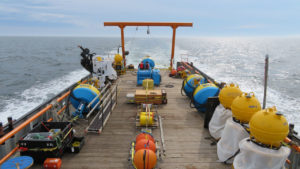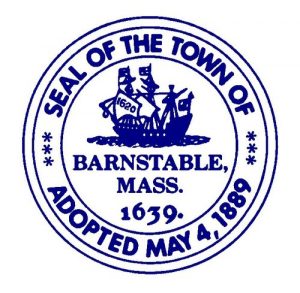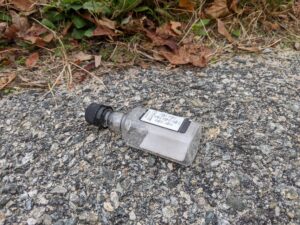
Environmental Sample Processors (ESPs) line the deck of a ship before being deployed in the Gulf of Maine. ESPs are a robotic system that analyze seawater for genetic signs of harmful algal species and transmit data back to shore. (Photo by Don Anderson, Woods Hole Oceanographic Institution)
WOODS HOLE – The Woods Hole Oceanographic Institution will receive nearly $7 million in grant funding to continue the operation of its Woods Hole Center for Oceans and Human Health.
The collaborative award from the National Science Foundation and National Institute of Environmental Health Sciences will be dispersed over 5 years.
The funding will benefit three centers and four projects aimed at improving public health by investigating the ways oceanic processes affect the distribution and persistence of human pathogens or the products of toxin-producing algae.
“These projects bring together scientists doing basic research on the oceans and Great Lakes with those in biology and human health to study processes that affect millions of people,” said Hedy Edmonds, a program director in NSF’s Division of Ocean Sciences, which co-funded the awards.
Harmful Algal Blooms, also known as red tides, are a global problem affecting public health, fisheries, tourism, and many other sectors of society.
There are serious and potentially growing human health impacts from exposure to the toxins produced by harmful algae, but many of the factors affecting the distribution, lifespan, proliferation, and toxicity of blooms still are poorly known.
The mission of the WHCOHH is to protect the public health by advancing research on the oceanic and environmental processes that affect populations of harmful algae, and by developing models to predict how climate variability might influence the magnitude, duration, and distribution of algal blooms and the resulting human exposure to the potent neurotoxins domoic acid and saxitoxin that some blooms produce.
Scientists associated with the Woods Hole Center are also researching how aspects of brain function may be affected by exposure to the toxins, especially during sensitive early developmental stages. The Woods Hole Center will communicate its findings to stakeholders, students, and the public to enhance broader understanding of issues related to ocean and human health and to aid resource management decisions.
























